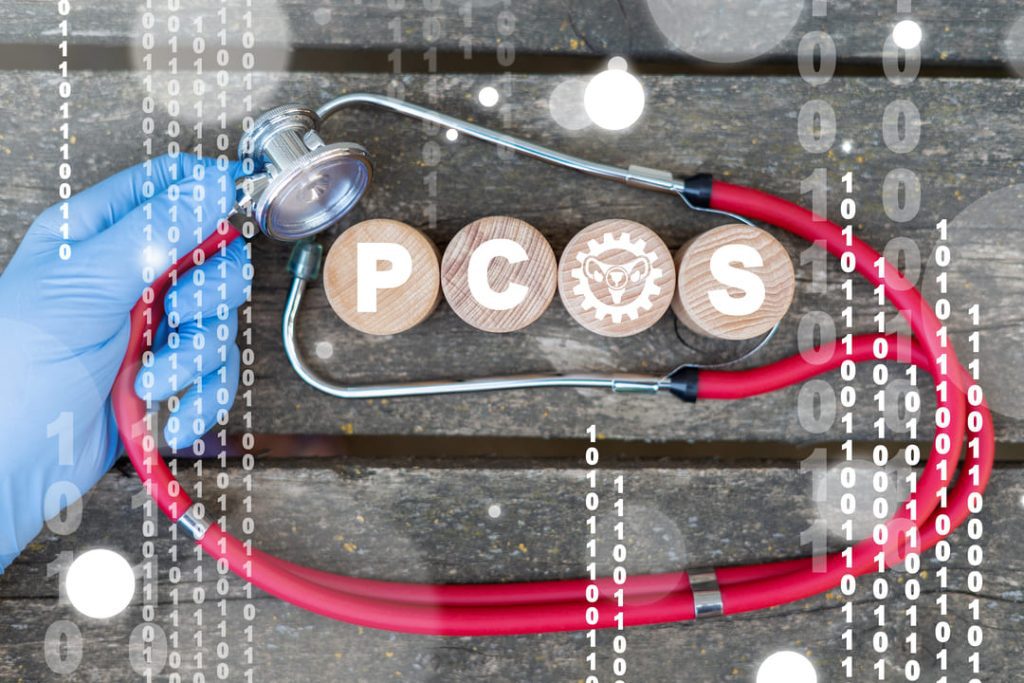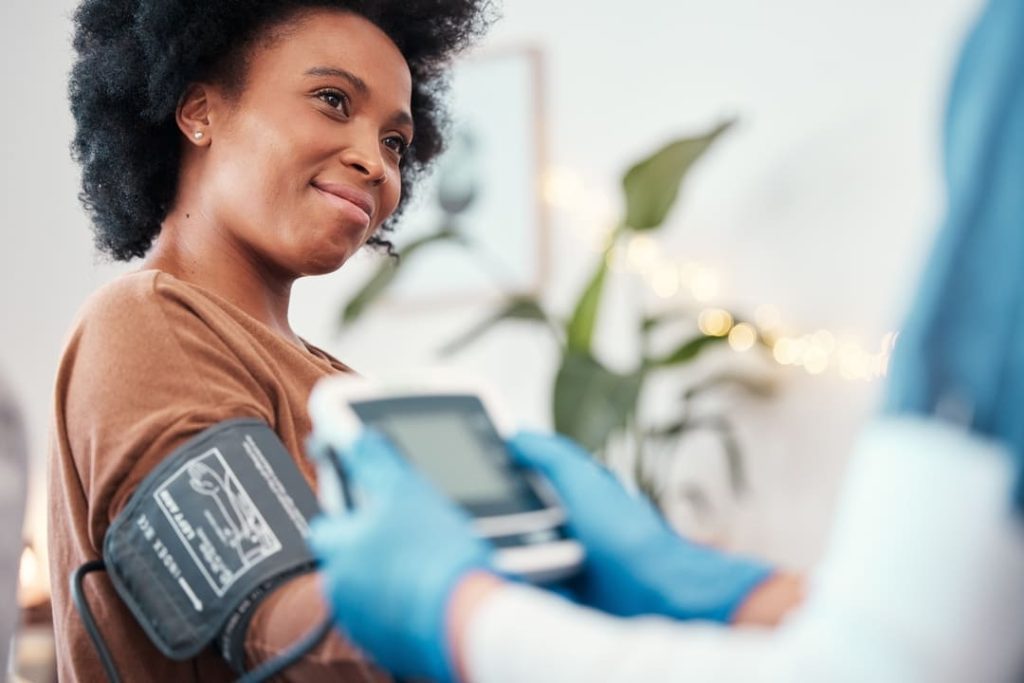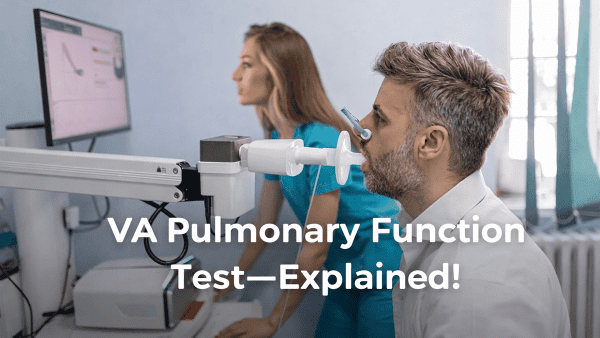Looking for Expert-Level VA Claim Answers?📱Call Us Now! 737-295-2226
Polycystic ovary syndrome (PCOS) is a hormonal issue affecting women in their reproductive stage of life, and, as a veteran, you may be entitled to a PCOS VA disability rating.
As women, we face our fair share of gynecological issues as we get older. However, that doesn’t mean you have to suffer in silence.
In this post, I’ll cover what causes PCOS in veterans, the VA rating chart for PCOS, how to file your VA claim, and much more.
Let’s begin.
Summary of Key Points
-
The VA rates PCOS under the General Rating Formula for Disease, Injury, or Adhesions of Female Reproductive Organs at 0%, 10%, and 30%.
-
If your PCOS requires a hysterectomy, you’ll receive a 100% rating for the first three months after surgery, followed by either a 30% or 50% VA rating.
-
To diagnose PCOS, you’ll undergo various tests, including taking a full family history, physical examination, blood tests, and an ultrasound.
Table of Contents
Causes of PCOS in Veterans

PCOS is a hormonal disorder affecting 1 in 10 women of childbearing age, including women veterans. The National Institutes of Health has described PCOS as “under-recognized, underdiagnosed, and understudied.”
Generally, the cause of PCOS is unknown; however, there are specific environmental exposure risks that put female veterans at risk for developing PCOS while on active duty, mainly due to endocrine-disrupting chemicals.
In addition, common symptoms of PCOS (overweight, obesity, and abnormal menstrual cycles) directly impact the deployment readiness of active-duty service women (ADSW), affecting military operations.
PCOS in Veterans: Symptoms to Recognize
While PCOS symptoms vary from woman to woman, common symptoms include:
- Irregular period
- Excessive hair on the face or chin
- Acne
- Thinning hair
- Weight gain or difficulty losing weight
- Abdominal pain
- Infertility
PCOS VA Disability Ratings

The VA rates PCOS at 0%, 10%, and 30% under the General Rating Formula for Disease, Injury, or Adhesions of Female Reproductive Organs.
Your VA disability rating for PCOS will rely heavily on your symptoms and how well you respond to treatment.
RELATED: VA Disability for Gynecological Conditions
PCOS VA Rating Chart
| General Rating Formula for Disease, Injury, or Adhesions of Female Reproductive Organs | VA Rating |
| Symptoms not controlled by continuous treatment | 30% |
| Symptoms that require continuous treatment | 10% |
| Symptoms that do not require continuous treatment | 0% |
| Note: For the purpose of VA disability evaluation, a disease, injury, or adhesions of the ovaries resulting in ovarian dysfunction affecting the menstrual cycle, such as dysmenorrhea and secondary amenorrhea, shall be rated under diagnostic code 7615 |
If your condition requires a hysterectomy, you’ll receive a 100% VA rating for three months after your surgery, followed by a 30% or 50% after that, depending on the extent of the loss of your reproductive organs.
Getting a PCOS Diagnosis: What Veterans Should Know
Before you can file a VA claim, you must have an official medical diagnosis of PCOS.
Your VA healthcare provider will begin by testing you for PCOS through a combination of physical exams, blood tests, and ultrasound.
To receive a diagnosis of PCOS, you must have at least two out of the following:
- Irregular periods
- Lab tests or symptoms of high androgen levels
- Polycystic ovaries by ultrasound
Early diagnosis and treatment of PCOS can help lower your long-term risk of developing additional conditions like type 2 diabetes and heart disease.
Deserve a Higher VA Rating?
Book a no-obligation VA Claim Discovery Call with an experienced team member. We’ll review your situation, spot what the VA may have missed, and help you map out a strategy to unlock the VA disability rating and tax-free compensation you’ve earned for your service. Click the red button below to book your call.
Service Connecting PCOS: 3 Steps to Success
To receive a PCOS VA disability rating, you must meet the following criteria:
- A current medical diagnosis of PCOS
- An in-service, injury, illness, event, or aggravation
- A medical link, or nexus, between your present condition and the incident
See More: How to Prove Service-Connected Disability
5 Steps to Filing for PCOS VA Disability
I’ve laid out five basic steps to filing a VA claim for PCOS disability to help you get started.
- Determine your eligibility for VA disability compensation
- Gather supporting evidence
- Complete VA Form 21-526EZ
- Submit your VA claim online, by mail, or in person
- Attend necessary medical examinations
Remember, you must have your medical diagnosis before filing for PCOS military disability benefits. You can check the status of your claim online.
Supporting Your VA Claim With Evidence
While you’re not always required to submit evidence when filing a VA claim, it can significantly impact the decision of your claim while strengthening its validity.
Examples of solid evidence can include:
- Nexus Letters
- Medical Records
- Lay Statements
Secondary Conditions to PCOS
It’s common for women suffering from PCOS to develop secondary conditions. For example, hormonal or metabolic fluctuations make you more likely to develop sleep apnea.
If you develop a secondary condition because of your service-connected disability, you may be entitled to additional benefits and compensation.
Research shows you have a higher risk of developing the following conditions if you have PCOS:
- Cardiometabolic events
- Impaired Glucose tolerance
- Type 2 Diabetes
- Dyslipidemia
- Obesity
- Chronic Inflammation
- Infertility
See our guide, How to File a Secondary VA Claim (4-Step Process), for more information.
PCOS and Unemployability
If your service-connected PCOS prevents you from maintaining substantially gainful employment (meaning you earn above the poverty level), you may be eligible for Total Disability Individual Unemployability (TDIU).
If you qualify for TDIU, you’ll receive the same benefits and compensation as a veteran with a 100% VA rating.
For more information about TDIU, check out our guide: How to Win Your TDIU Claim
VA Services for Veterans With PCOS
The VA provides many medical and non-medical services to help with PCOS and its symptoms and complications, including:
- Medications
- Infertility treatments
- Pre-conception health care
- Maternity care
- Healthy eating assistance through programs like the Healthy Teaching Kitchen
- Weight management through programs like MOVE!
- Assessment and treatment for metabolic disorders like heart disease, diabetes, pre-diabetes, elevated cholesterol levels, and high blood pressure
- Mental health treatments for associated depression

(FAQs) Frequently Asked Questions
Do I need a C&P exam for PCOS?
You may not need a C&P for PCOS; however, you must receive the appropriate testing for an official diagnosis. You must have an official medical diagnosis to receive VA disability.
What’s the difference between endometriosis and PCOS?
Endometriosis and PCOS both affect women of reproductive age; however, there is one main difference between the two, as seen below:
- Endometriosis is associated with higher levels of the female hormone estrogen
- PCOS is linked to excess androgens, mainly considered male hormones
In addition, PCOS affects the ovaries, while endometriosis can affect the ovaries, uterus, and other organs in the lower abdominal cavity.
Can I enter the military if I have PCOS?
Yes, you can enter the military if you have PCOS, pending your symptoms are well-controlled and you meet the physical requirements necessary to be on active duty.
How VA Claims Insider Can Assist
Do you feel underrated for your disabilities and not getting the appropriate compensation?
At VA Claims Insider, we help you understand and take control of the claims process so you can get the rating and compensation you’re owed by law.
Our process takes the guesswork out of filing a VA disability claim and supports you every step of the way in building a fully-developed claim (FDC)!
If you’ve filed your VA disability claim and have been denied or have received a low rating—or you’re unsure how to get started—reach out to us! Take advantage of a VA Claim Discovery Call.
Learn what you’ve been missing—so you can FINALLY get the disability rating and compensation YOU DESERVE!
Author

Kelly Olone
Kelly Olone is a military spouse who earned her degree in Psychology from Florida International University. After working in the non-profit sector for several years, she turned to her passion for writing. She aims to contribute to a better understanding of the valuable benefits that veterans deserve. As a mom, Kelly navigates the delicate balance between deadlines and bedtime stories with finesse.



